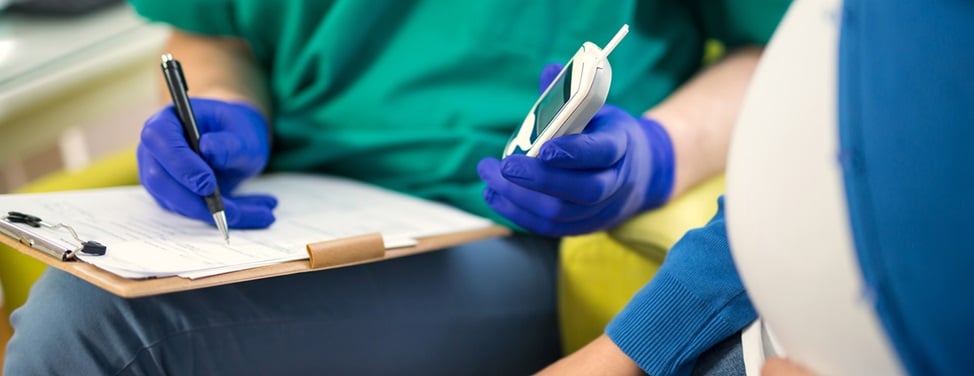Pregnant people with untreated OUD are at risk of overdose and death. For fetuses, exposure to repeated episodes of opioid withdrawal, as can happen during untreated addiction, has been linked to stillbirth, poor growth, and preterm birth. Treatment with medications for OUD has repeatedly been shown to improve outcomes for both birthing parent and infant.
Any opioid exposure during pregnancy can cause neonatal abstinence syndrome (also known as neonatal opioid withdrawal syndrome), a term for the array of symptoms that can affect newborns withdrawing from certain substances in the first days after birth. This syndrome is temporary and treatable, and its symptoms can be eased by staying on your OUD medication as prescribed, breastfeeding or chestfeeding, rooming-in (the baby staying in your room, rather than in a nursery), and not using tobacco.
If you're pregnant or planning to become so and you use opioids, the first thing you should do is talk to a health care provider. You may need to take an opioid medication during pregnancy to manage your pain or to treat OUD. People on opioids can and do have healthy pregnancies, so talk to your provider about ways to help.
Cannabis
Cannabis (marijuana) use during pregnancy is not recommended, as some studies show that prenatal cannabis use is linked to lower birth weights and to difficulties for children later in life, including problems with attention, memory, problem-solving and behavior. Cannabis smoke contains many of the same toxic, cancer-causing chemicals found in tobacco smoke, thus exposure to that smoke may cause pregnancy complications. THC, the psychoactive or mind-altering compound in cannabis, also may be passed to infants through secondhand smoke.
We recommend not using cannabis at all while pregnant, and that includes edible and even topical CBD products. More research is needed to show whether these are safe during pregnancy. If you're using cannabis to treat common ailments, talk to your health care provider about safer alternative treatments for anxiety, nausea, or insomnia. If you feel cannabis use is problematic in your life, you may have a cannabis use disorder, and you should talk to your healthcare provider about treatment options.
Amphetamines
Amphetamines are stimulants. Some are prescription drugs, such as Adderall, often prescribed to treat attention-deficit/hyperactivity disorder (ADHD), while other amphetamines, such as methamphetamine, are more commonly illegal "street" drugs. Using any kind of amphetamine carries risks during pregnancy.
Pregnant people with methamphetamine use disorder can have many pregnancy complications, mainly related to the drug's effects on them. Because the drug causes appetite loss, the pregnant person may not eat enough during pregnancy, which can result in low birth weight for the newborn. There is also an increased risk of premature delivery. Methamphetamine use can cause cardiovascular complications, such as high blood pressure and even stroke, in the birthing parent.
Research shows that quitting methamphetamine use at any point during pregnancy and obtaining regular prenatal care can help lead to a normal outcome. While the Food and Drug Administration (FDA) hasn't approved any medications for the treatment of methamphetamine use disorder, certain behavioral therapy techniques have been shown to be effective. We recommend you talk to your provider about your use.
Some pregnant people have been prescribed amphetamines for therapeutic reasons, such as to treat ADHD. In general, they have better outcomes than pregnant people who are addicted to methamphetamine. As with all medications, the FDA recommends amphetamines be used during pregnancy only if the possible benefits outweigh the potential risks, which may include low birth weight and preterm delivery. If you're pregnant or planning to become so and you use prescribed amphetamines, talk to your health care provider as soon as possible to discuss whether or not to continue.
Cocaine
Cocaine use during pregnancy harms both the pregnant person and the fetus. It's associated with maternal migraines, seizures, premature rupture of membranes (when your "water breaks" too early) and abruption (separation of the placental lining from the uterus prior to delivery). Because cocaine intensifies the cardiovascular changes that normally occur in pregnancy, using it while pregnant can cause dangerously high blood pressure, spontaneous miscarriage, preterm labor and difficulties during delivery. If you are having difficulty stopping cocaine use during pregnancy, you may have a cocaine use disorder. As with methamphetamines, there are not FDA-approved drugs to treat cocaine use disorder, but various behavioral therapy techniques have been shown to be effective.
Prescription drugs
Some medications can be harmful to unborn and nursing babies. If you take any prescribed drugs, alert your health care provider as soon as possible so that any needed changes or adjustments can be made. If you're planning to become pregnant, discuss your medications with your provider prior to getting pregnant, especially if you take a blood thinner or a medication for high blood pressure.
Over-the-counter drugs and supplements
Before taking any over-the-counter medicines, including antacids, laxatives, sleeping pills, cold medications and pain relievers, talk to your health care provider or consult the list of recommended medications in your Caring for Yourself During Pregnancy guidebook. While some are safe for pregnant people, many are not. If you have a healthy diet, you don't need additional vitamins or supplements, other than your prenatal vitamins. High doses of some vitamins and other supplements can actually be harmful to you and your baby.
Caffeine
Coffee, tea, colas, energy drinks, chocolate and some medications have caffeine. For at least 10 years, there has been controversy over whether this substance is harmful during pregnancy. Some studies suggest it's associated with an increased risk of miscarriage, early delivery or lower birth weight. Other studies have shown that pregnant people who consume caffeine in moderation don't have these problems. It's known that caffeine passes through the placenta, but the actual associated risks are less clear. We recommend getting no more than 200 milligrams of caffeine a day, which is the amount in one 12-ounce cup of coffee.
Ask your health care provider for more information about substances and their effects on pregnancy. Remember that babies need healthy parents, and ideally the health of the parents should be optimized prior to pregnancy, but it's never too late to make these changes.






















